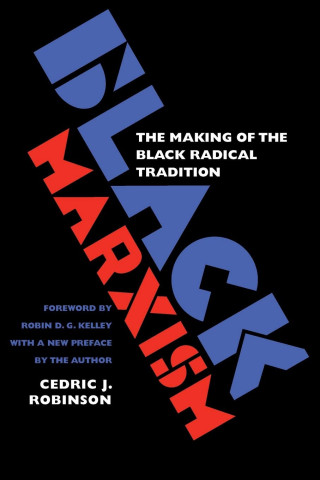In 1983, Robinson outlined the historical antecedents of this Black and urban radical democratic tradition in his book Black Marxism: The Making of the Black Radical Tradition. He departed from Marx and Engels by uncovering forms of radicalism that couldn’t be confined to the grammar and logic of the European working class and linked this tradition to the long struggle for decolonization. The rebellions of the 1970s and ’80s could thus be understood as forms of Black resistance within a longer inventory of resistance to capitalism’s order of racial and economic domination. The ordinary men and women in Miami and London were not unlike those Black workers who resisted earlier forms of racial and economic domination, forms that Robinson went to great lengths to highlight in Black Marxism. Slave resistance was an early antecedent of this tradition of radical democratic struggle, and it clarified for him the idea that something about justice could be discerned from those farthest from it. Drawing from the writings of Amílcar Cabral, W.E.B. Du Bois, and C.L.R. James, Robinson saw Black insurgencies as challenging the race-based structure of capitalism and the state by illuminating resistance as the basis of moral authority. In response to the question of who sets the agenda for Black struggle, Robinson answered in the plural: As he suggested in Emergency, Black liberation rested on “the maximum of the human resources contained in our communities.”
Robinson, who had long been the director of the Center for Black Studies Research at UC Santa Barbara, died in 2016. His insight into how Black mass movements have helped to reconfigure the nature of democratic authority and political activity in the modern era can be found in today’s movements struggling to free the country from its brutal confluence of state-sanctioned violence and capitalism. As Robin Kelley noted in 2017, “Today’s insurgent black movements against state violence and mass incarceration call for an end to ‘racial capitalism.’” It was a term that Robinson did not invent, but it was central to his analysis of domination in modern society. The insurgents today have sought to take the battle to the streets; theirs is a politics from below, not from above. The work of building new forms of life can happen nowhere else.
Over the past several years, organizers of these movements have drawn from and directed attention to Robinson’s work, particularly in the context of political education workshops building the bridge between theory and practice. Now, thanks to Pluto Press and to the dedicated work of his partner and longtime collaborator, Elizabeth Robinson, along with others like H.L.T. Quan and Kofi Buenor Hadjor, we have a new book that collects his published and unpublished work both before and after Black Marxism. Through these essays, we see further evidence of Robinson’s profound faith in the ability of ordinary people to fight against the corruptions of a world that routinely mocks the logic and practice of democracy. In them, we get a clear sense of what Robinson insisted in his work from the outset: that Black freedom struggles are a central part of resisting today’s violent racial and capitalist order.
